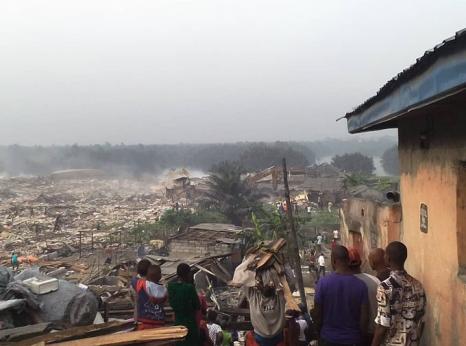Nigeria: 60,000 Forcibly Evicted In Port Harcourt

Port Harcourt is the capital and largest city of Rivers State, Nigeria. It is a metropolitan city with a population of over 3 million people. It lies along the Bonny River. Despite being an oil producing region of Niger Delta, thousands of people in the region live below the poverty line amidst inadequate and affordable housing. The forced evictions in Port Harcourt across waterfront communities has affected the lives and livelihood of its residents. The forced evictions followed an announcement by the Governor of Rivers State, Nyesom Wike, in his 2022 New Year message, that the state government would, from the second week of January, commence the demolition of all shanties and makeshift structures in criminal hotspots in Port Harcourt.
Under international law, evictions may only be carried out as a last resort, once all other feasible alternatives to eviction have been explored and appropriate procedural safeguards have been put in place. Such procedural safeguards include provision of adequate notice, opportunities for genuine consultations and access to legal remedies. Governments must also ensure that no one is rendered homeless or vulnerable to the violation of other human rights as a consequence of eviction. In cases where evictions may be justifiable, it is incumbent upon the relevant authorities to ensure that they are carried out in a manner warranted by law and which is compatible with international human rights laws and standards.
Although the Nigerian Constitution directs the state to ensure that adequate shelter is provided for all citizens, this provision is in the Constitution’s ‘directive principles’ and therefore not enforceable in Nigerian Courts. However, Nigeria is a party to the International Covenant on Economic, Social and Cultural Rights and other international and regional human rights treaties which require states parties to realize the right to adequate housing, and to prevent and refrain from carrying out forced evictions.